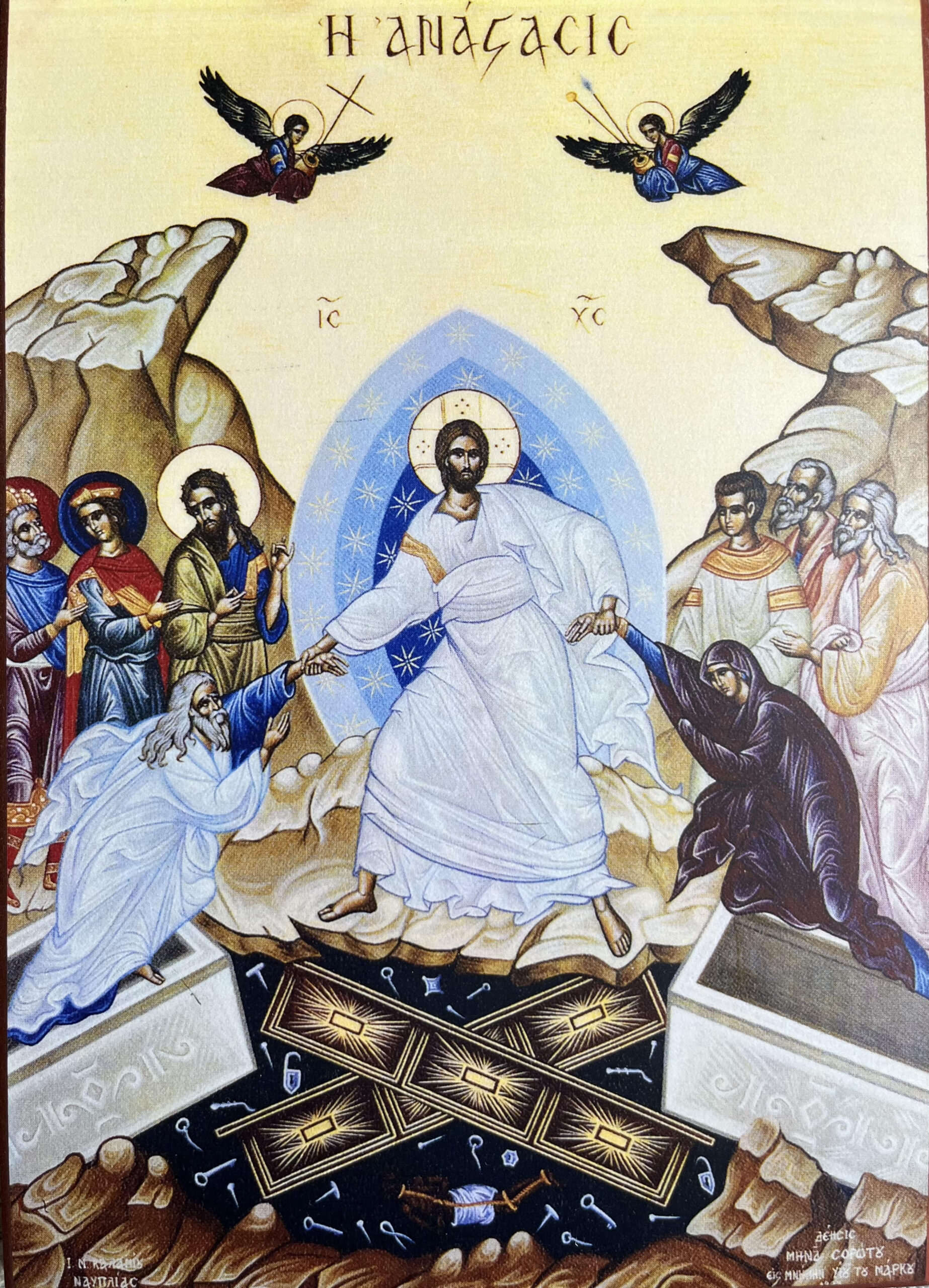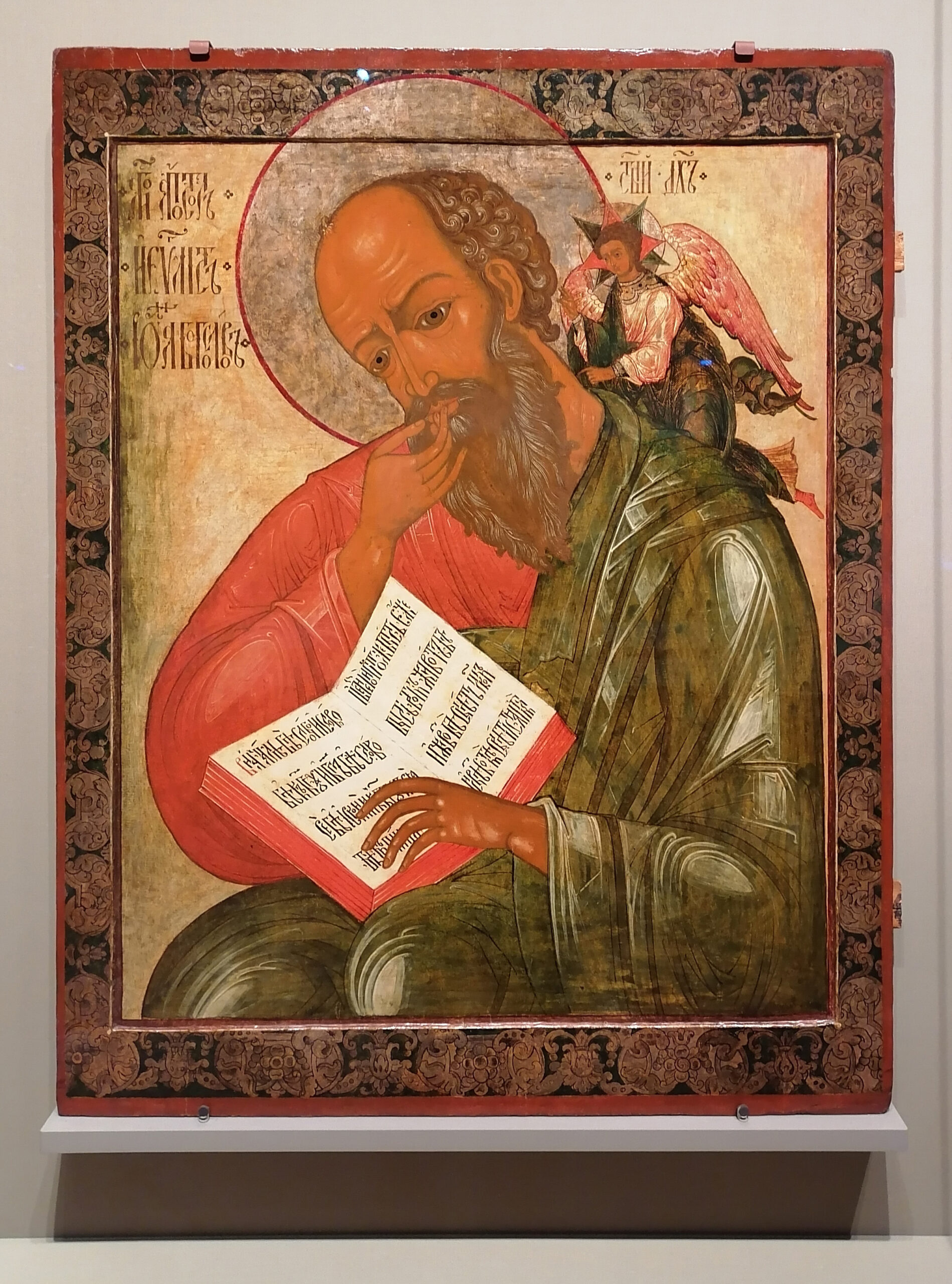Let God arise, and His enemies be scattered; let those who hate Him flee from His presence.
A sacred Pascha is shown to us today; a new and Holy Pascha; a mystic
Pascha; an all-venerable Pascha; a Pascha, which is Christ the Redeemer; a
spotless Pascha; a great Pascha; a Pascha of the faithful; a Pascha which
has opened to us the gates of Paradise, a Pascha sanctifying all the faithful.
~Praises, Pascha, Trans. by Fr. George Papadeas
—
Then Moses stretched out his hand over the sea; and the Lord drove the sea
back by a strong east wind all night, and made the sea dry land, and the
waters were divided. And the people of Israel went into the midst of the
sea on dry ground, the water being a wall to them on their right hand and on their left.
Exodus 14: 21-22
Christ is Risen!
In this study, we have discussed the first “Passover”, when the Hebrews were
liberated from slavery in Egypt. After they were released by Pharaoh, they
began their journey away from Egypt, led by God by a pillar of cloud during
the day and by a pillar of fire at night. The early days of that journey
were undoubtedly joyful, as the Hebrews tasted freedom for the first time in
450 years. In addition to joy, there must have been renewed confidence, as
the people knew they were being led by God, and God was on their side and
not on the side of the Egyptians, who had had their first-born sons struck
down by God.
However, the heart of Pharaoh hardened once again, and he decided to pursue the people of Israel again. They looked up and saw Pharaoh and six hundred chariots pursuing them. And their confidence and joy turned to fear. They cried to Moses “Is it because there are no graves in Egypt that you have taken us away to die in the wilderness? What have you done to us in
bringing us out of Egypt?. . .For it would have been better for us to serve
the Egyptians than die in the wilderness.” (Exodus 14: 11-12) Moses answered
them “Fear not, stand firm, and see the salvation of the Lord, which He will
work for you today; for the Egyptians whom you see today, you shall never
see again. The Lord will fight for you, and you have only to be still.”
(14: 13-14)
Then the Lord told Moses to stretch out his hand over the Red Sea, and the
Lord, through the hand of Moses, parted the Red Sea and the Israelites walked
across as if they were on dry land. When they had crossed, the sea again
came to its place and the Egyptians drowned.
I’ve watched this scene depicted in multiple movies. Seeing the people of
Israel cross on dry land with tall walls of water being held back on either
side of them is actually something that looks fearsome. They were walking.
The Egyptians were on chariots pursuing them and closing fast in on them.
The movies always show the people of Israel barely making it out of the sea
before it closes after them and drowns the Egyptians who have nearly caught
up to them. These scenes truly depict how the people Israel crossed from
death to life. Because death is around them in the raging sea, and it is
behind them in the pursuing Egyptians. And God is ahead of them, in the
pillar of the cloud, and in the open and dry land on which they cross. The
people of Israel see death to either side of them, they see slavery behind
them but they see “the gates of paradise”, freedom, in front of them.
Imagine the mindset of those people, the trust to just keep walking and not
fear what was on all sides of them but one.
We make this journey metaphorically throughout our lives. At many points it
seems as if we are nearly surrounded by danger and destruction. The path
out seems narrow and even this path has its challenges. This path is like
the people of Israel crossing the Red Sea, with menacing waves at our sides.
And it is up to us to keep walking forward, following the Lord with faith.
The above hymn, and its reference to “A Pascha which has opened to us the
gates of Paradise” makes me think of the Red Sea and how its parting opened
the gates to the paradise of freedom for the people of Israel. It still
took courage and effort to walk that path, as it does for us to follow God’s
path.
The new Pascha, the New Passover, “which is Christ the redeemer,” is
describe in several ways. It is a “mystic” Pascha, which means we will not
fully be able to comprehend it, at least not in this life. Just like the
people of Israel would not have been able to fully comprehend the parting in
two of a large body of water, they just had to “go for it.” We must, in
many respects, do the same. The New Pascha is “all-venerable.” We are
supposed to have reverence for Christ and what the Resurrection means for
us. It is “spotless” and pure, and it calls us to be the same. It is a
“great Pascha,” as obviously the Resurrection is the most monumental
occurrence in the history of the world, because it redeems the world.
It is also a “Pascha of the faithful,” for the Resurrection is not merely
the celebration of Christ’s triumph over death, but the hope that we can all
triumph over death, as this Pascha “has opened to us the gates of Paradise.”
The last words of this hymn are a call to action. This is “a Pascha
sanctifying all the faithful.” In other words, it calls all of the faithful
to be sanctified, to be holy, to be set apart for the Lord. We imitate the
people of Israel in walking from slavery into freedom. However, journey is
not from Egypt across the Red Sea, it is from this life, in faith, through
death, to eternal life.
As smoke vanishes, let them vanish, as wax melts before the fire.
Come from the scene, O Women, bearers of good tidings, and say to Zion:
“Receive from us the tidings of joy, of the Resurrection of Christ. Delight,
dance and be glad, O Jerusalem, for You have beheld Christ the King, as a
Bridegroom coming forth from the Tomb.” (Praises, Pascha, Papadeas)
The journey across the Red Sea required faith. Yet even this journey was
incomplete, because it led from Egypt to still more wandering in the desert.
Our journey of faith will resemble this, with danger on three side, but with
Paradise in front. We cross our “Red Sea” not into more desert wanderings,
but into the beauty of Paradise.

